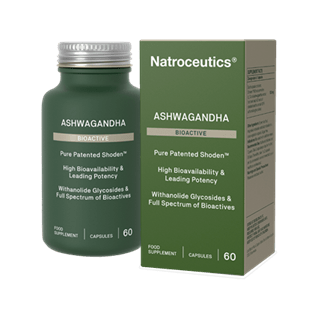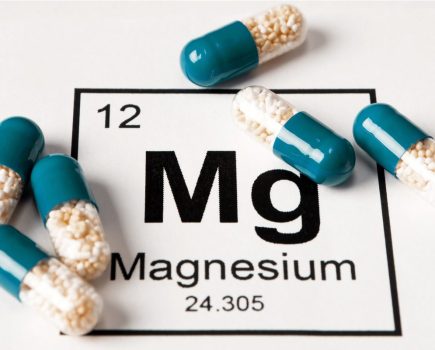 Hormonal shifts during perimenopause cause a decline in the relaxation hormone progesterone, leading to insomnia and low mood, says functional nutritionist Pauline Cox MSc. Find out how to get this natural stress reliever back into balance.
Hormonal shifts during perimenopause cause a decline in the relaxation hormone progesterone, leading to insomnia and low mood, says functional nutritionist Pauline Cox MSc. Find out how to get this natural stress reliever back into balance.
Words: Pauline Cox. Images: Suzi Bird Sunlight Portrait Studio, Natroceutics & Shutterstock.
Disclaimer: For information only. Not to be used as or instead of medical advice.
Chill out
Progesterone is your “keep calm and carry on” hormone, helping you feel serene, settled, and sleep well. However, as you enter early perimenopause, there is often a decline in this vital sex hormone, which can result in insomnia, aches, pains, and low mood.
During perimenopause, you are four times more likely to experience depression. Progesterone has a naturally relaxing effect on your brain and increases a calming brain hormone called GABA (gamma-aminobutyric acid). When GABA levels decline, anxiety and stress can increase.
Low levels of progesterone are also associated with increased aggression, irritability, and fatigue just before your period.
Herbal solution
 Keeping cortisol levels in check is key to supporting ailing progesterone levels.
Keeping cortisol levels in check is key to supporting ailing progesterone levels.
Medicinal herb ashwagandha can shift your body out of the stressed fight-or-flight state and into rest-and-digest mode by lowering anxiety, reducing sleeplessness and fatigue, and reducing serum cortisol levels.
I recommend Natroceutics Ashwagandha Bioactive (£21.25, sowandarrow.com), which is a highly bioavailable form with a 35 per cent concentration of withanolide glycosides – active phytochemicals.

Boost your progesterone
- Vitamin C: Eat citrus fruit, bell peppers, sauerkraut, and kiwi fruit to raise progesterone naturally. Supplementing with this vitamin can also impact progesterone. A high-quality liposomal vitamin C is a good form to try and can support increasing progesterone levels.
- Magnesium: Not only a key nutrient for increasing GABA levels, magnesium also helps regulate healthy progesterone levels. Magnesium levels can decline with increased stress, a high-sugar diet, and high alcohol intake. Age is also a risk factor for declining magnesium levels, as you don’t absorb as much from your diet as you get older.
- Vitamin B6: This vitamin not only increases feel-good hormone serotonin, but it also helps maintain healthy levels of progesterone. Sunflower seeds, turkey, and fish are great sources of vitamin B6.
- Zinc: You need zinc for healthy hormonal balance, including the production of follicle-stimulating hormone, which causes ovulation and the production of progesterone. Women can often be low in zinc, leading to reduced taste, persistent infections, low mood, and hormonal imbalance. Increasing zinc-rich foods like seafood, pumpkin seeds, and red meat supports healthy zinc levels.
Minimise stress
Your stress response is normal, but when stress becomes relentless and cortisol continuously rises, progesterone can plummet, robbing you of progesterone just when you need it most! That’s because your body uses the same building blocks to make both hormones.
So, when stress goes haywire, progesterone production is put on the back burner, leaving you at risk of anxiety, insomnia, and irritability.

Increase GABA
Improve symptoms of low progesterone in perimenopause by increasing your GABA hormone by upping your magnesium intake. Leafy greens are a great source. Cooking greens, such as sautéing spinach or steaming kale, increases the bioavailability of magnesium.
Dark chocolate, almonds, sesame, and avocados are also good sources. For a good bioavailable supplement, I recommend magnesium bisglycinate, which is well tolerated by the gut.
For high-quality supplements selected by Pauline for bioavailability and efficacy, visit sowandarrow.com. Follow Pauline at instagram.com/paulinejcox.







